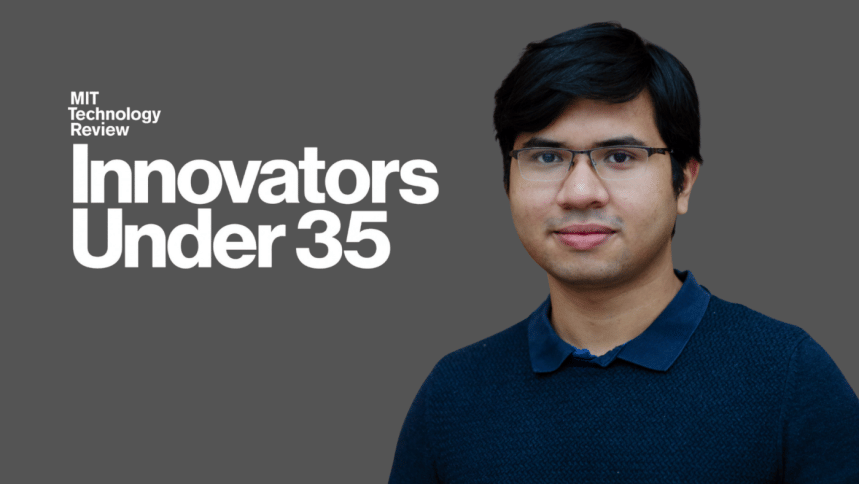Mahi’s inclusion in the list recognises his PhD work on developing robot intelligence capable of operating in unstructured human environments. Photo: Courtesy
“>
Mahi’s inclusion in the list recognises his PhD work on developing robot intelligence capable of operating in unstructured human environments. Photo: Courtesy
Nur Muhammad Mahi Shafiullah, a Bangladeshi researcher in artificial intelligence and robotics, has been named in MIT Technology Review’s ’35 Innovators Under 35′ list for 2025. According to the list, he was recognised for his work on building robot intelligence that can operate in unstructured human environments.
MIT Technology Review’s ’35 Innovators Under 35′ is an annual list that highlights young scientists, entrepreneurs, and visionaries making breakthroughs in their fields, states the official website. Each year, 35 individuals under the age of 35 are selected worldwide for their contributions to technology, science, and innovation. Notable previous recipients include Elon Musk, Larry Page, and Mark Zuckerberg.
Mahi, from Mirpur, Dhaka, attended Monipur High School and Dhaka College. He was one of the youngest members of Bangladesh’s 2011 Mathematical Olympiad team, winning two bronze and one silver at the IMO, and represented Bangladesh twice at the International Olympiad in Informatics. He studied mathematics and computer science at MIT, where he earned his Bachelor’s and Master’s degrees. He later completed his PhD at New York University’s Courant Institute of Mathematical Sciences and now works as a postdoctoral researcher in Meta’s Fundamental AI Research division, while also contributing to Berkeley AI Research (BAIR) at UC Berkeley.
Mahi’s inclusion in the list recognises his PhD work on developing robot intelligence capable of operating in unstructured human environments, a subject he has pursued for the past five years. His PhD research and projects encompass three main initiatives: Robot Utility Models, which train robots to perform individual tasks in any new environment; the Dobb-E Project, which uses affordable hardware to record everyday human activities in real apartments, helping robots learn from real-life actions; and the OK-Robot Project, which enables robots to carry out long-term tasks in new environments without retraining. “This achievement feels like a recognition for my research thesis, and the solutions that I have been able to propose with my colleagues,” shared Mahi.
Mahi plans to continue on the academic path, pursuing postdoctoral research and eventually leading his own lab. He aims to solve key challenges that prevent fully autonomous home robots, including developing memory and dexterity in artificial intelligence systems. He said that he is interested in building robots that can learn from humans when possible and use machine learning to bridge the gaps where human input is limited. He added that this global recognition will open doors to more working opportunities in the future and inspire him to pursue further research and innovation.




 For all latest news, follow The Daily Star’s Google News channel.
For all latest news, follow The Daily Star’s Google News channel.